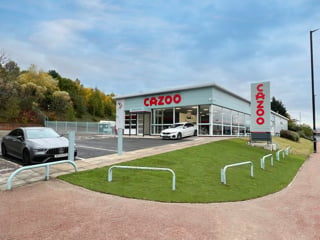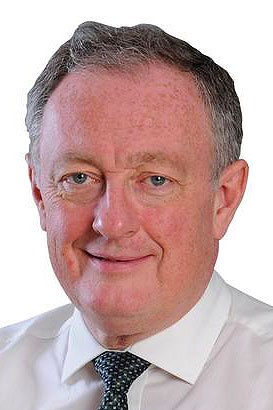Employers need to treat staff like adults and give them the freedom to innovate and find their own path, a former director of human resources at the BBC told members of the AM Executive Breakfast Club.
Lucy Adams was in charge of HR at the corporation at a time when it was challenged by emerging online channels such as Netflix, the Jimmy Savile child abuse scandal, and a need to reduce annual costs by a fifth.
Leaders had to view what the BBC did in a different way, she said. One change was a drive to get the BBC’s different divisions, which had been stubbornly tribal and even saw each other as competition, working collaboratively.
“Driving collaboration is a cost issue, but also a customer experience issue. Customers just want a better experience,” she said.
Cost-cutting also meant the end of the BBC’s final salary pension scheme and ‘inflation-plus’ pay deals.
“People at the BBC didn’t expect to be earning as much as people at Sky or ITV, but they expected to be looked after. It became more problematic, and it led to strikes and real anger.”
Now running her own business, Adams believes companies need to change their relationships with their workers, or they will not be agile enough to compete.
She outlined the ‘EACH’ model – Employees as Adults, Consumers and Human beings.
Employees as adults
Employment law is based on a parent-child approach, she said, citing examples of reminders in the toilets about washing hands, or emails advising them to leave early if it snows heavily. Companies generally have a list of employment policies. However, she said this only gets read by 1% of the staff.
Many businesses create an environment based on compliance and discipline or not trusting staff to use their judgement, and that creates a workforce that waits for orders, doesn’t feel trusted and works in a child-like way, said Adams.
Some companies do treat employees as adults. Netflix’s staff expenses policy simply states: “Do the right thing by Netflix”. Adobe expects workers to chat to their manager about issues, not wait for an annual appraisal. Adams said it is about having a starting point of where you trust your people.
“Research tells us that if people feel trusted at work, they’re more likely to be engaged, to stay, to be innovative, productive, because you’re creating a different mindset.
“It’s not policies, but approaches. Tell your staff what you think matters, and allow them to find their own ways to achieving that.
Employees as consumers
Companies constantly gather digital data to improve what they offer consumers. However, employers typically do one annual engagement survey and have little insight into their employees.
Virgin Trains tasked its marketing team with working out how it could find out more about its own workforce. Windscreen maker Belron texts its employees each week asking simply ‘how was work for you this week?’. Such approaches allow businesses to react in timely and targeted ways.
Adams said she detests the expression ‘employees are our greatest asset’. “Assets are not human beings, they’re cars and buildings and computer equipment, things that tend to behave very similarly to the asset identical to it. Human beings are messy, mercurial, frustrating, wonderful and individual. Yet everything we do in terms of how we approach people at work is an asset-based approach.
“We record data on them like an asset register – where they are, how many we have, what they cost, what their shelf-life is. What we don’t know is how they feel, think, behave – we don’t have a level of consumer insight.”
Employees as humans
The HR profession has developed processes for human beings that show no understanding of how human beings actually think, feel, behave or communicate, said Adams. She cited learning as an example – 80% of what people learn on a training programme will be forgotten in 30 days. People learn 70% on the job, 20% through social interaction and 10% through formal learning, but employers focus on formal learning.
Different rewards drive different people, but this too is often ignored. For some, a thank you note is memorable, surprising and thoughtful. For others, extra time off is a reward. Yet companies often put more emphasis on bonuses.
“By and large, money does not drive productivity or performance. What does is autonomy, mastery and a sense of purpose, being part of something bigger.”
Companies also give workers who become managers the sense that they need to be more formal, she said. Management is not about figures and Powerpoints, but giving your team stories and getting them excited and optimistic.
“Your primary role as a leader is not to be the big shot who knows or does more, it is to enable the people who work for you to do the best work of their lives.”




















Iceage - 03/01/2017 13:25
Oh dear, a typically naive concept from a liberal **edited for legal reasons**